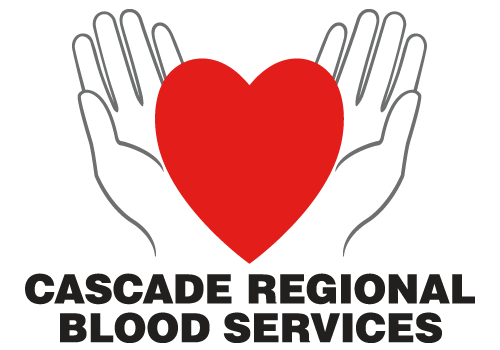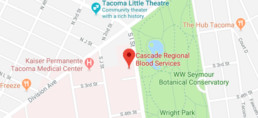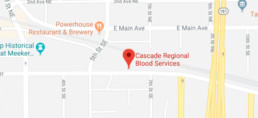Glossary of Terms
ANEMIA (ah-nee’-me-ah)
Having a lower-than-normal number of red blood cells or quantity of hemoglobin. Anemia decreases the capacity of the blood to carry oxygen to body tissues.
APHERESIS (a-fur-ee’-sis)
From Greek meaning to ‘take away’.The process of apheresis involves removal of whole blood from a patient or donor, separating blood components via an apheresis machine, one or more components are withdrawn and the remaining components are re-transfused into the patient or donor. Also known as an Automated process.
AUTOMATED PROCESS
See Apheresis.
ECMO (Extracorporeal Membrane Oxygenation)
Extracorporeal means outside of the body. A membrane oxygenator is a piece of equipment which acts as a lung to deliver oxygen into the child’s blood. The ECMO circuit acts as an artificial heart and lung for the patient during ECMO therapy.
ECMO is a life-saving technique that mimics the natural function of the heart and lungs, allowing an infant or child to rest while natural healing of the affected organs takes place. Candidates for ECMO include newborns and children suffering respiratory and/or cardiac failure as a result of birth defects, trauma or severe infection.
The ECMO procedure involves channeling the patient’s blood into a roller pump that serves as the child’s “heart” throughout treatment. The pump sends the blood through an oxygenator, which serves as an artificial lung, infusing the blood with oxygen and removing carbon dioxide and returning it to the patient.
During extracorporeal membrane oxygenation treatment, the child’s heart continues to beat, but its work is made easier because the ECMO machine does much of the pumping. The length of time a child remains on therapy depends on the diagnosis and the child’s individual response.
ELECTROLYTES
The ionized salts and minerals present in body fluids that conduct electrical impulses in the body. Common electrolytes are sodium chloride, potassium, calcium and sodium bicarbonate. Electrolytes help maintain fluid balance, nerve conduction and muscle contractions.
ERYTHROCYTOSIS (ee-rith’-roe-sy-toe’-sis)
An increase in the number of red blood cells in a unit volume of blood. This occurs essentially as a response to an inadequate supply of oxygen to the tissues. It occurs at high altitudes, in smokers, in heart or lung disease and in the presence of certain tumors that produce substances that stimulate red cell production.
ERYTHROPOIETIN
A hormone secreted by the kidneys that increases the rate of production of red blood cells in response to falling levels of oxygen in the tissues. Abbreviated as EPO.
HEMATOCRIT (heem-at’-oh-crit)
The ratio of the volume of red blood cells to the total volume of blood.
HEMOCHROMATOSIS
Hemochromatosis is an iron disorder in which the body simply loads too much iron. This action is genetic and the excess iron, if left untreated, can damage joints, organs, and eventually be fatal.
HEMOGLOBIN (heem –oh-glo’-bin)
The protein molecule in red blood cells that carries oxygen from the lungs to the body’s tissues and returns carbon dioxide from the tissues back to the lungs. Also the lab test that measures the hemoglobin protein level in blood, expressed as grams per deciliter of blood.
POLYCYTHEMIA (pol-ee-sy-thee’-me-ah)
The term polycythemia is used in the myeloproliferative (to grow abnormally in the bone marrow) disorder – Polycythemia Vera – in which there are increased levels of all three blood cells – red blood cells, white blood cells and platelets. Secondary polycythemia pertains to an increase in red blood cells due to an underlying condition and would more accurately be referred to as secondary erythrocytosis.



